The old streets of Varanasi were bubbling with sound as people crossed them. The sacred river of Ganges, were flowing calmly, filled with boats. By the ghats, the stone stairs leading down to the river, people were bathing, washing away their sins as according to their beliefs was possible with the river’s help. The golden temples shone under the scorching sun, illuminating the western banks.
Across the river, a young Indian woman in a blue British dress and white hat ran between the people, getting glares from the more traditional people for running around like a child. A few older ladies in traditional Indian sari muttered that the girl needed a husband. It might be 1930, but a young woman still needed a husband to be decent.
The girl though didn’t care as she ran, cursing her high heels as she ran toward the Central Hindu College. Running into campus, panting and gritting her teeth she ran into the classroom, eyes turning towards her, all of them frowning at her tardiness. A few muttered that it was expected. If it was because of her being a native among the foreign British or because of her gender, the woman didn’t know. She just ignored them, turning toward the only familiar face in the room.
“Late again, miss Mahadevi?” the older man said, his wrinkles deepen in a frown on his pale skin, the stoic face, stern in a disapproving manner.
Smiling, the woman raised a lunchbox. “My Maa wouldn’t let me leave until I brought you lunch, Amos.”
“Call me Mr. Graycrest or Sir, Amara,” Amos said, but his stern expression softened at the mention of Amara’s mother making him lunch. “Are you bribing me, miss Mahadevi?”
“Is it working?”
“…What is in the lunchbox?”
“Kashmiri Pulao,” Amara cocked an eyebrow. “Your favorite.”
With a grimace, Amos nodded for her to take a seat, but not before he relieved the lunch from her hands with an eager gesture. Being an old friend of her father, Amara’s mother knew how to handle Amos.
Sitting down by the desk, several eyes glaring at her, she pulled out her books after removing her hat. Her tanned skin glistened with sweat, making her look far from the rich lady she was. She pulled out a handkerchief, wiping it off as she glanced at the board.
“Now, where were we?” Amos muttered, looking up at the board. “Oh yes, the Vedic period ensured the rise of the second urbanization after the creation of the Indus Valley Civilization. During this time, we see the creation of writings of the Vedas, developed in the Kuru Kingdom, and depicting the basis of Brahmanical ideology. The civilizations during these times were formed through the unions of different Indo-Aryan tribes and the Vedas became the base for the archaeologic knowledge of the era and the race that we use today. “
“With archaeological studies, we have found out that the Vedic period developed several traits we associate with a developed world, such as iron tools, hierarchy of social classes, and the transition from a nomadic lifestyle to a settled agriculture while they kept other more barbaric practices such as battering with cattle and food, instead of using currency,” turning toward the class, Amos touched his neatly trimmed gray beard. “Now, can any of you explain why the Vedas is considered problematic to use as a source of information outside it being a religious text?”
The class fell into silence, the only thing sounding was the eager waving of the only woman in the classroom.
“Yes, miss Mahadevi?”
“It wasn’t an originally written text, before the Vedic period the Vedas transmitted orally which means that the information given could have been changed over the years the story was told,” Amara said, ignoring once again the glares she received from her classmates, who just seemed to dislike her presence.
“Exactly, written texts are bound to some consistency, they can of course be altered but as the text can be compared, it makes it easy to determine when the content has been changed. Oral traditions are not the same, they can be altered mildly by one teller, only to once again be altered by the next. When it has been told ten times, all by different people who changed the original story a bit, then the last person's tale will be unrecognizable to the original.”
A blond boy, with a distinct aristocratic appearance, lifted lazily his hand into the air. His grey eyes gave Amara a condescending glance, before turning toward Amos who frowned at him.
“Yes, Mr. Rake?”
“But the Vedas exist in literary form.”
“But they were created long after the original story was told, which means that it could have been altered to the point of being unrecognizable already when it was written down.”
“True, but considering the use for the Vedas in our subject, I’m not sure if it matters if it was changed or not.”
“Doesn’t it?” Amos touched the board, pointing at the scripture iron tools. “We believe today that iron tools were first introduced during the Vedic period. This is information taken from the Vedas. Now, since the Vedas have been told orally for a long time, maybe even before the Vedic period. How can we determine if this piece of information is true? Maybe they discovered iron tools long before this period.”
Mr. Rake shrugged, “As long as no new information is introduced then we can only conclude that is the case.”
“Which is what we do now, but we still need to consider the possibility of this not being the case since the information isn’t bulletproof. Our tasks as archaeologists are to study what evidence there is to try and give a more solid conclusion-” Amos started to erase what he had written. “because all of this might just be wrong. We aren’t just historians telling the tales which we presume to be right. We are those who question what we know, to find a possible alternative answer to the knowledge that has an unstable basis. If you don’t question everything you read, how are you ever to find the truth?”
*****
Washing off her face, ensuring that she didn’t reek, Amara finally exited the bathroom and rushed over to the classroom to see Amos still preparing for tomorrow’s lesson. “Did the Kashmiri Pulao taste good?” she asked with a wide grin on her face, making her look like a mischievous little girl. Amos sighed in anguish at her, but his eyes were twinkling.
“It tasted wonderful as usual but I’m a bit tired of the dish.”
“Have you still not found one you can eat without your mouth swelling up?”
“…I can eat Naan bread.”
“You are so very British,” Amara chuckled.
“Guilty as charged,” Amos replied with another sigh before his face become serious. ”Have you read through the class literature?”
“Yes, both the first and second volume of the Sacred Books of the East, but frankly, I could have read the originals since you have taught me Sanskrit.”
“True, it gives you a head start on this class, but I wanted you to take a step further and comparing the Sanskrit text with the English translations of Sacred Books of the East so you can discuss how the differences in languages affect the texts,” Amos replied, turning toward the board. His eyes scanning the things he had written.
“You always give me extra work.”
“A necessary percussion as you are constantly under supervision ever since I convinced the school to take you in despite being a woman.”
“There are other women in the school,” Amara pointed out.
“True but they are few, and have even fewer choices in their education. How many of them have joined the higher education outside that of teacher and nurses?” Amos peered at her. “Besides, you were raised by me. You are further ahead than the rest of the class.”
Amara couldn’t help to smile, but it turned into a grimaced when she felt pain throb on her forehead as Amos flicked it. “Don’t look so presumptuous when you barely have the decency to arrive in time for classes.”
Snorting, Amara rolled her eyes and pulled at his arm. “Take me for breakfast! I haven’t eaten because I had to run here.”
“I still have-“
“Amos!”
“Fine, but-“ Amos grimaced in annoyance as a student rushed in.
“Professor Graycrest! You have to listen to this.”
The boy grabbed onto Amos and pulled him out, Amara laughed as she rushed after. The students stood around a radio, crackling to life. Hindi was sounding from the All India Radio station in a rush voice as people stood around them, whispering eagerly and in fear as the news came through.
“-a devastating earthquake has shaken Dhubri to the core, but that wasn’t the largest shock to the people. Now people have gathered to the wonderous sight of the appearance of rapture in the ground, emptying the lake, revealing what looks like an ancient temple. People are rushing the place hoping to find treasures before the government moves in to secure what most likely will be the greatest find of this century.”
Eyes wide, Amara turned to Amos whose eyes were narrowed, she was just about to open her mouth when he stopped her. “I’m sorry, Amara, but I will need to handle this. You eat breakfast by yourself. Tell your mother to not wait up for me, I need to send a telegraph to Harold Hargreaves at the ASI. I will most likely be on the telephone all day. “
Without another word, Amos stormed off, eyes following him as he ran to get the news of what could possibly be a whole new chapter in India’s history.


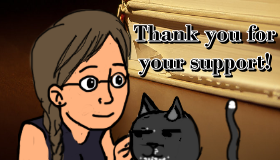
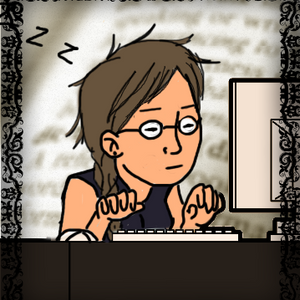





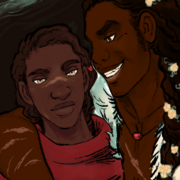


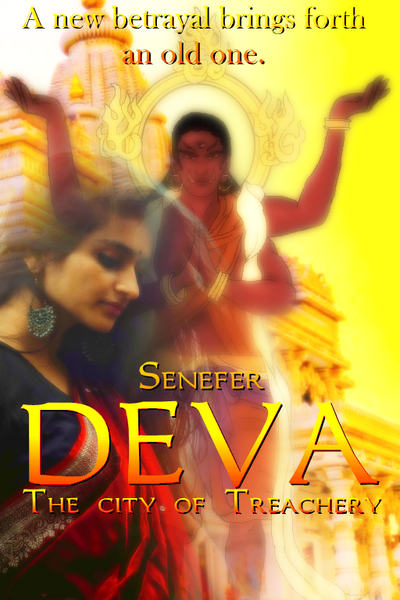
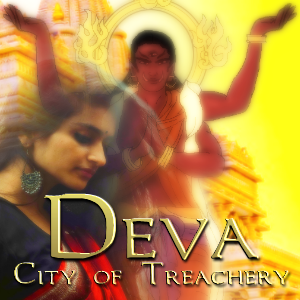
Comments (1)
See all